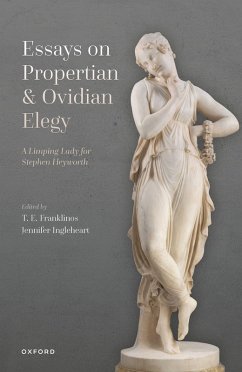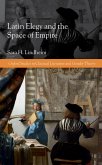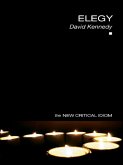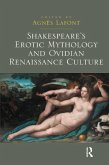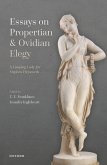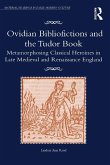This volume brings together eleven chapters on the genre of Latin elegy by leading scholars in the field. Latin elegy is typically thought to have flourished for a brief period at Rome between c. 40 BC and the early decades of the first century AD; it was the pre-eminent vehicle for writing about amatory matters in this period and among its principal exponents were Propertius and Ovid, whose works constitute the focus of this volume. Their poems and poetic collections were, however, by no means restricted to the themes of love, even if amatory concerns often surface at unexpected moments in texts that are not ostensibly concerned with love. Both poets were alive to their precursors' writings in elegiacs, and so aetiological themes and reflection on contemporary political circumstances form an integral part of their poetry. Such concerns are explored in some of the chapters on Propertius, on Ovid's Fasti and exile poetry, and also in a Renaissance elegy that looks closely to its literary heritage as it comments on the concerns of its day. Some contributions to this volume also shed new light on the typically elegiac conceit of separation, notably in amatory and exilic texts, while others look to conceptions of Roman identity and the relationship between the natural world and the cultural, political and literary spheres. All of the chapters share an interest in the close-reading of texts as the basis for drawing broader conclusions about these fascinating authors, their poetry, and their worlds.
Dieser Download kann aus rechtlichen Gründen nur mit Rechnungsadresse in A, B, BG, CY, CZ, D, DK, EW, E, FIN, F, GR, HR, H, IRL, I, LT, L, LR, M, NL, PL, P, R, S, SLO, SK ausgeliefert werden.

